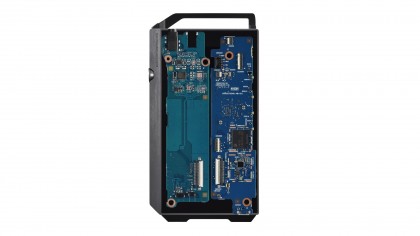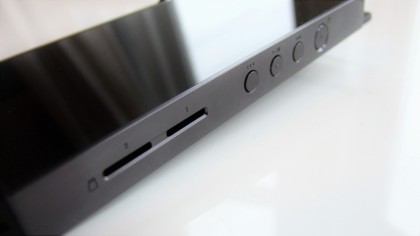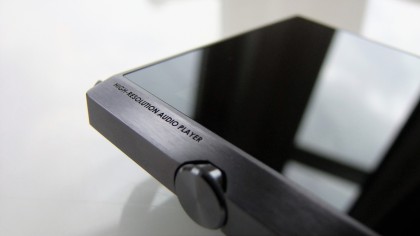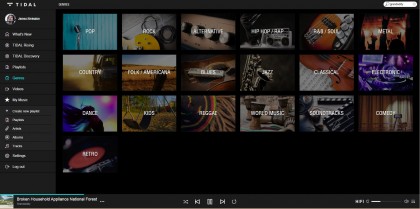Pioneer's Hi-Res player uses audio origami to fit lossless music in your pocket
One for the audiophiles

Sign up for breaking news, reviews, opinion, top tech deals, and more.
You are now subscribed
Your newsletter sign-up was successful
The brand new Pioneer XDP-100R has just been unveiled, packing everything into a powerful, chunky design that promises to be the best audio player Pioneer can build.
And not just the best portable audio player either.
The XDP-100R is all about Hi-Res Audio (HRA), supporting a huge array of different file formats including DSD 11.2MHz and FLAC 24-bit/384kHz.
To be able to support such high-powered audio the Android 5.1.1-powered Pioneer XDP-100R has been kitted out with top-of-the-line internal components, featuring a SABRE ES9018K2M DAC and SABRE 9601K amplifier.

All the audio hardware has been completely separated from the CPU side of things (a 32-bit quad-core Qualcomm Snapdragon 801) and the power supply circuitry is kept isolated from the audio side to minimise potential noise.
It comes with 32GB of internal storage, plus support for a pair of microSD cards (each supporting up to 200GB for a possible total capacity of 432GB).

That's a lot of high-end aural goodness, but the big news is that with a system update early in the new year it will become one of the first products in the world to support the upcoming MQA audiophile audio file format.
Sign up for breaking news, reviews, opinion, top tech deals, and more.
Master Quality Authenticated
MQA is set to revolutionise the high-resolution audio world, bringing it out of the closed off world of the super-serious audiophile and opening it up to the convenience of music streaming and portability.
Traditional HRA formats need to have incredibly large file sizes to fit in all the audio data for true lossless playback - as a single 24-bit/192kHz FLAC album can take up over 1.5GB of space. That makes them impractical for streaming and means that even with the 32GB of internal storage in the XDP-100R you're not going to fit much high quality music onto a portable player.

MQA uses a technique it's calling Audio Origami to 'fold' up a high resolution file into a far more manageable size. That means they're magnitudes smaller than such files are at present, and are only a little larger than the CD-quality tracks Tidal streams today.
The MQA format does need a decoder in the playback device to fully unfold the file into its original, studio master, state. But one of the neatest tricks of all is the fact that even without a compatible decoder it will still play. It won't be in its original full format, but thanks to the origami technique it will still be of higher quality than CD.
This in turn means big things for streaming companies, because the fact that MQA files are adaptive and are able to unfold to whatever level the playback device can support, they only need to store one format for each track in their library.
So. Much. Data.
In Tidal's case it currently houses some 1.4 petabytes of audio data because of all the different formats it supports. Replacing some of that with MQA files will then save a huge amount of space and money.
Tidal is promising MQA support soon and with the Pioneer XDP-100R getting on board too that could be a match made in audiophile heaven.

Whether MQA is going to be included in, or will create another tier on top of, its current lossless HiFi subscription it couldn't confirm.
"We would like to have it part of the HiFi tier," a representative from Tidal explained to us. "It's more important for us for people to listen to quality than move those already interested in quality up to a higher tier again."
"I think actually we'd rather go with less content to begin with just to do that, to get the story right - you can listen to the master. It's about connecting the fans with what the artist makes in the studio."
As one of the first MQA-compatible players on the market, and one with some serious high-end componentry inside, the Pioneer XDP-100R isn't going to come cheap. At £500 (around $700) it's a lot more expensive than your new iPod Touch, but will also take it out back and give it a good shoeing in the audio department too.